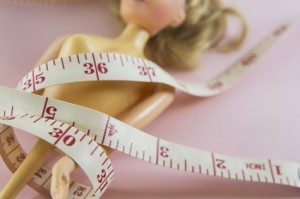Eating disorders come in many variations, and many go overlooked.
An eating disorder goes far beyond skipping meals. Eating disorders affect people psychologically and lead them to self-harming behavior; They are characterized by a person’s distress, and subsequent actions toward their body weight or shape, or efforts managing weight or food intake (National Institute of Mental Health).
The most commonly known eating disorders, Anorexia Nervosa and Bulimia, are actually the least commonly diagnosed. Eating Disorder Not Otherwise Specified (EDNOS) affects between half to two-thirds of all people diagnosed with eating disorders, more than Anorexia Nervosa and Bulimia combined (Eating Disorders Online). In the United States, a reported 30 million individuals struggle with eating disorders (National Association of Anorexia Nervosa and Associated Disorders); but because my eating disorder was never reported or discussed, I can guarantee that those statistics should be much higher.
During the time that I had an eating disorder, I didn’t understand nutrition or dieting or how to properly lose weight—so the result of my only eating an apple per day was slim to none. There were little visible changes in my appearance over my years of having an eating disorder beyond me being tired and tired-looking, and friends saw my weight loss as natural. I was fatigued from the moment I woke up, exhausted all day long, and could barely focus during school. I avoided having meals with friends, which resulted in distancing myself all around. I diagnosed myself with EDNOS, because I clearly had problems, but they didn’t fall directly under Anorexia Nervosa or Bulimia. EDNOS stretches as far as binge eating, over-exercising, eating fixations, and much more.
Some eating disorders are are primarily stressors upon one’s daily meal, exercise, or clothing choices. Some are severe enough to send the sufferer to a hospital or into a suicidal mental state. Calorie-counting and dieting apps have proven to be helpful to many people; but when I see them, I am reminded of the days when all I would do all day was think about how much I wanted to eat and all of the reasons as to why I couldn’t. I would spent more time deciphering the true amount of calories in my apple than I would talking to anyone about what was going on in my life.
My advice is to always talk to your friends and the closest people in your life. Ask them questions and ask those questions kindly. If you have a hard time asking whether or not they are suffering, try to prompt an honest response from the person. A possible way to make asking deep questions easier is to tell the person an anecdote of your own that relates to what you want to know about them. If you want honest answers, give honest answers and ask fair questions.
If you notice that a friend is constantly skipping meals, never finishing reasonable portions of their food, constantly body-shaming themselves or others, avoiding eating in front of people, or leaving for the restroom right after they eat—it’s likely that they are experiencing some sort of eating disorder.
It is important to remain positive through you or your loved one’s recovery. Giving subtle compliments, sharing feelings and general body positivity are keys to helping both yourself and others.
There is much more to learn about eating disorders beyond this article, if you’re interested in more, visit: the National Institute of Mental Health’s website, https://www.nimh.nih.gov/health/publications/eating-disorders/index.shtml. If you or someone you know is suffering from an eating disorder, it may be helpful to visit: https://www.nationaleatingdisorders.org/ or speak with someone who you trust.









Leave A Comment